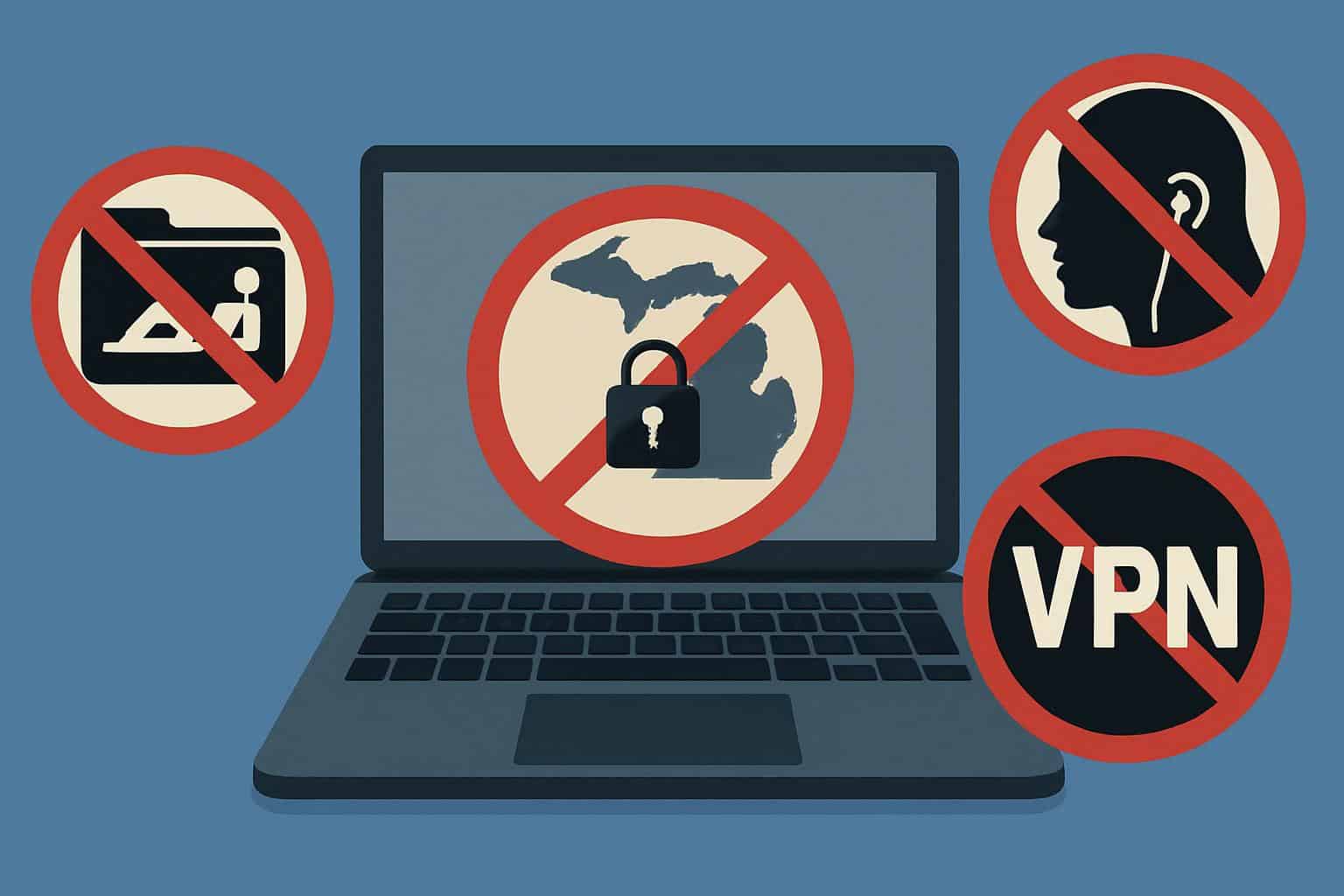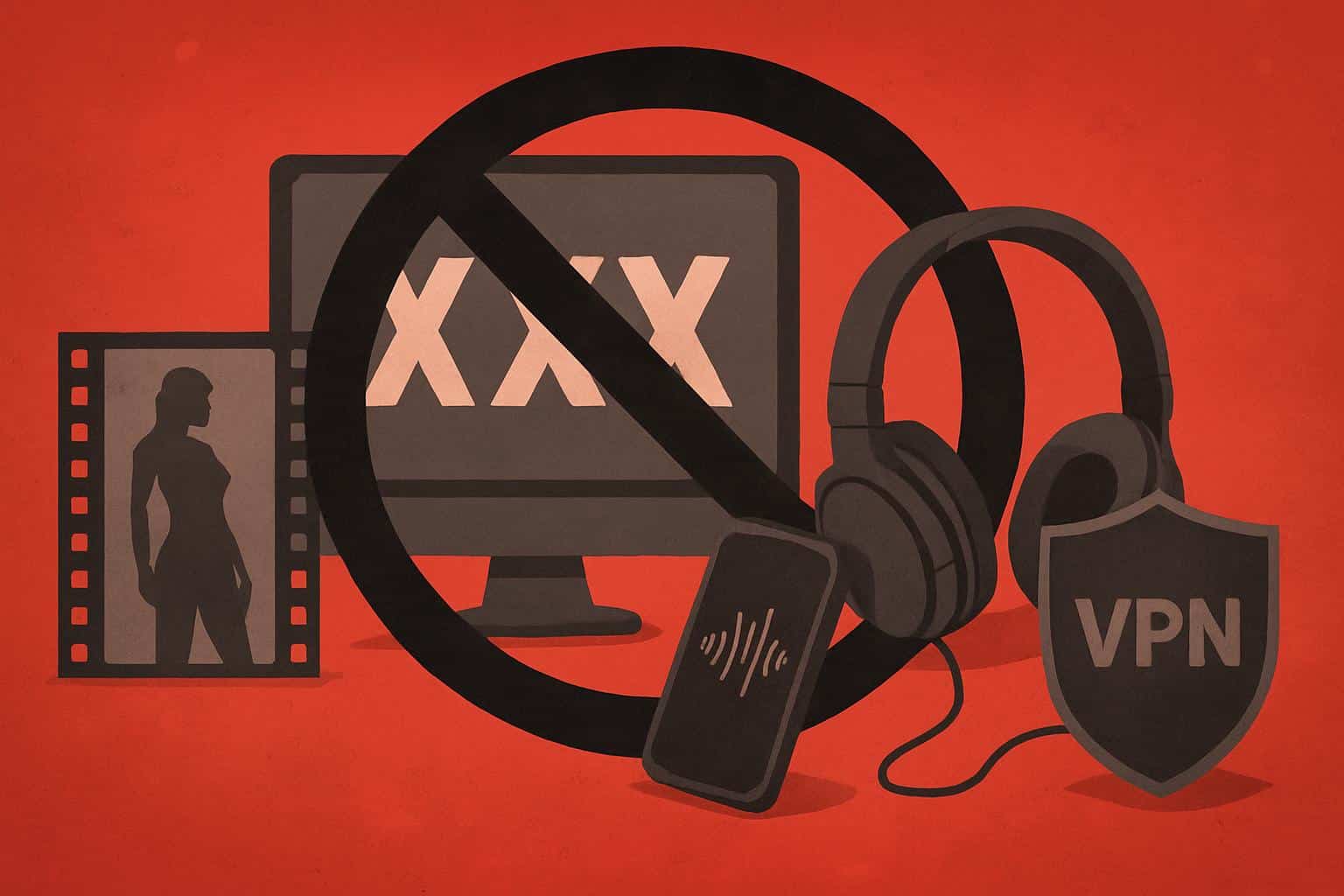Michigan Republicans have put forth far-reaching legislation to criminalize the hosting or distribution of a vast array of adult content online, well beyond traditional porn to even written erotica, artificial intelligence-shaped furry shots and live streams — and possibly even erotic ASMR. The bill, House Bill 4938, called the Anti-Corruption of Public Morals Act, would go even further by regulating identity speech to restrict online depictions and descriptions of transgender people, as well as requiring internet providers to block circumvention tools, including VPNs.
What the bill prohibits across media and formats online
The proposal would ban “sharing, distributing, selling or hosting” content that depicts or describes a wide variety of sexual acts in every kind of format: videos, images, magazines, manga, and comics, as well as fiction, AI-created content (such as revenge porn), live feeds, and audio. Its audio guidelines are unusually far-ranging, prohibiting moaning, “sensual voice content,” and erotic ASMR — a vast genre online populated mainly by whispered sounds and soundscapes.

The text also takes aim at a “disconnection between biology and gender,” punishing material in which someone is “imitating” or presenting as another biological sex. Legal experts say this encompasses much more than sexually explicit material: It sweeps up nonsexual or “educational” content about transgender people, including personal videos, news interviews, and supportive resources. While the bill provides a narrow exception for peer‑reviewed scientific or medical research, this does not protect general news, education, or art.
Adult industry and civil liberties groups argue that such language would treat transgender existence as obscene, leading to their erasure from online media. The Free Speech Coalition’s policy crew has already marked the proposal as a content- and viewpoint-based restriction, one that would strike creators, platforms, and users across the board.
Felony penalties and the role of ISPs under HB 4938
HB 4938 would punish individuals or organizations that operate platforms or services hosting prohibited material, and the accompanying penalties are life-destroying. Violators face fines of up to $100,000 and prison sentences of up to 20 years; for more than 100 pieces of contraband material at a time, penalties go up to $125,000 and 25 years. This enforcement model imposes liability on hosts, which will result in overbroad pre‑publication filtering and takedowns that prevent the speech of entire categories from reaching an applicable audience.
The bill would also order internet service providers to stamp out “circumvention tools,” a category that is broadly interpreted to include VPNs. It also prohibits the promotion of the sale of such tools. Cybersecurity experts point out that VPNs are the norm for protecting remote work, health records, and government and corporate networks. The broad language in the measure could ensnare app stores, device makers, search engines, and corporate IT practices that depend on encryption-protected tunnels.
Constitutional red flags raised by content restrictions
The most searching constitutional standard applies to content-based restrictions. Even under the Supreme Court’s Miller standard, otherwise immoral material is not entrusted to general public access unless it is tried by a jury and found obscene on the basis of community standards, a patently offensive display, and no serious literary or artistic value. Erotic literature and adult sexual language regarding consensual acts of adults (above all, for legal reasons) may relate to this kind of sexuality. By criminalizing descriptions and depictions in all media, from audio to the written word, the bill risks significantly overbroad enforcement of its provisions related to free speech.

Federal precedents like Reno v. ACLU and Ashcroft v. ACLU struck down overbroad attempts to police online sexual content, particularly when narrower alternatives were available and adult access was being chilled. Importantly, isolating transgender status also presents the classic viewpoint-discrimination problem. Organizations such as the ACLU of Michigan and the Electronic Frontier Foundation have previously fought similar laws, claiming that they are too broad, unclear, and unconstitutional.
A broader political push behind age-verification laws
The Michigan bill is one of a wave of age‑verification mandates for adult sites across the country. In some states, prominent platforms have reacted by shutting down the ability for access rather than harvesting sensitive IDs, a dynamic that underlines the privacy and cybersecurity trade‑offs identified by digital rights advocates. The Heritage Foundation’s Project 2025 policy blueprint has even put forth the idea of a federal‑level porn ban, suggesting that what were once fringe proposals might come to shape more state agendas.
The difference about HB 4938 is the breadth. In addition to making erotically narrated content criminal and mandating VPN blocks, it begins exploring the worlds of platform moderation and cybersecurity norms — not criminal law. That breadth poses collateral risks to podcast hosts, audiobook sellers, creators on short‑form video apps, fan communities centered around comics and manga, and even libraries or booksellers that host user reviews or discussion boards.
Outlook in Lansing as lawmakers weigh HB 4938’s fate
Democrats are in control of Michigan’s executive branch as well as both legislative chambers, but it is unclear that they have the votes to pass the measure. Even before it becomes law, the bill’s aggressive stance could chill speech: Platforms might begin removing highly debatable content in advance of supporting local access to their platforms from Michigan, and creators may geoblock audiences or relocate accounts in order to avoid jeopardy.
Expect fierce committee scrutiny if the measure passes. Who is likely to weigh in includes civil liberties groups, L.G.B.T.Q. organizations, cybersecurity experts, internet providers, creators, and publishers. The question legislators will confront is whether they can square an expansive criminal regime targeting porn with constitutional limitations — and what it will cost Michigan’s online economy and communities if they cannot.

